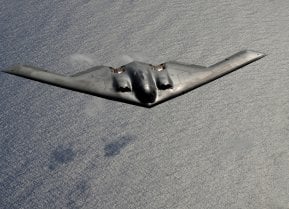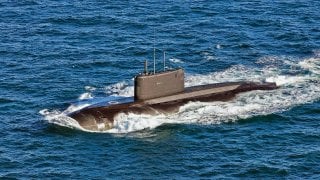Russian Kilo-Class 'Black Hole' Submarine Might Make the Ultimate Comeback
Russia's navy is in such bad shape it is being forced to repair submarines like the old Kilo-class boat damaged in the war against Ukraine.
Russia to Repair Damaged Kilo-class Submarine: Last September, a drone and missile strike that was carried out by Ukrainian forces on the Russian Navy's Black Sea Fleet facilities in Sevastopol resulted in significant damage to the drydock. In addition, a Minsk Ropucha-class large landing ship was also damaged, while the Rostov-on-Don, one of Moscow's four improved Project 636.3 Kilo-class submarines, was also hit by a missile.
It was reported at the time that it was unlikely that the submarine would be returned to service. The Russian Ministry of Defense has announced that despite the damage taken in the attack, the boat will be repaired.
"The Sevastopol Shipyard (affiliate of Zvyozdochka Shipyard) will complete the repairs of the Rostov-on-Don and eliminate the damage inflicted on September 13, 2023 by a Ukrainian cruise missile strike at the enterprise by the end of the first half of the year," a source in the Russian military-industrial complex told state media outlet Tass on Wednesday, adding that the 13th Shipyard is the main contractor for the overhaul.
The Admiralty Shipyard in St. Petersburg, which built the submarine, will also participate in its repairs – but what role it will play hasn't been made clear. The source also told state media that the damage sustained on the Rostov-on-Don was not critical and will not considerably prolong the overhaul of the submarine.
While an older submarine, the Kilo-class boars are known in some defense circles as being very stealth under the waves, earning the term the 'black hole' submarine.
Daring Strike on the Black Sea Fleet
Ukraine had carried out the September attack with modified Soviet-era Su-24 (NATO reporting name Fencer) fighter-bombers, which launched the British-supplied Storm Shadow missiles at the warships. A total of 10 missiles were employed in the strike, and while seven were intercepted, one struck the submarine and another two hit the landing ship.
It resulted in the worst day for the Russian Navy since the sinking of the Black Sea Fleet's flagship Moskva nearly a year and a half ago earlier. Images shared online showed the extent of the damage after the Rostov-on-Don was struck by the missile, and it appeared the warhead penetrated close to the forward hull close to the front end of the pressure hull.
As naval expert H I Sutton wrote for Naval News that week, any repairs of the Kilo-class submarine would be expensive and time consuming.
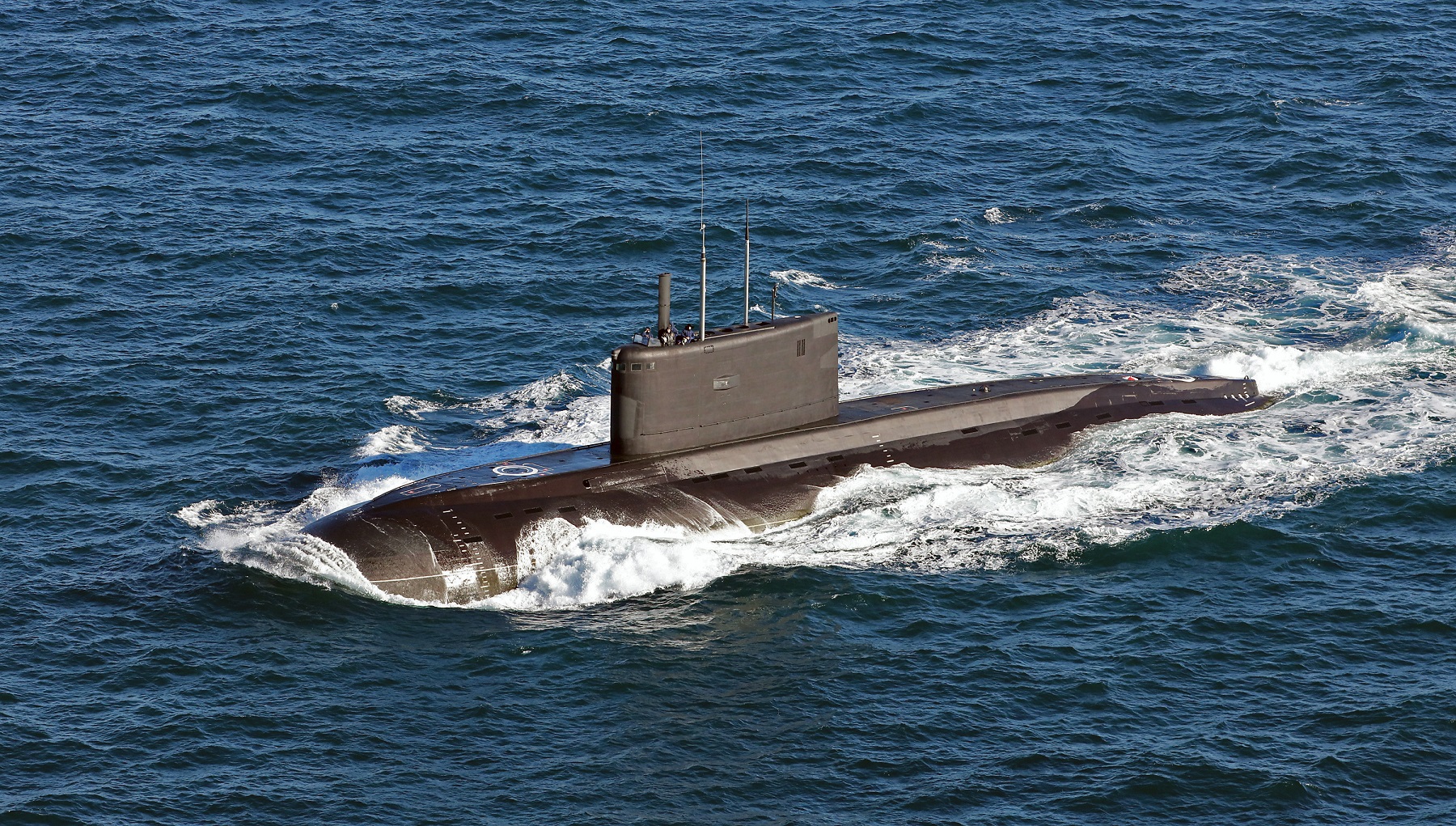
The Russian Navy has lost several vessels in the ongoing conflict – notably the aforementioned flagship Moskva guided-missile cruiser, which was sunk by Ukrainian anti-ship missiles in April 2022. In October 2022, the flagship successor Admiral Makarov was also struck by naval drones and damaged in port, while last August two Russian large landing ships anchored in Novorossiysk – more than 200 miles east of Sevastopol – were hit by drones.
Oryx open-source data reported that 16 Russian vessels had suffered damage since February 2022, 10 of which were sunk or otherwise destroyed.
The Sorry State of the Russian Navy
Even before the start of the war, the Russian Navy has been in a steep decline for years, and it was in April that retired U.S. Navy Admiral James G. Foggo, dean of the Center for Maritime Strategy, told Newsweek that the Kremlin has allowed its above-water fleet to "atrophy."
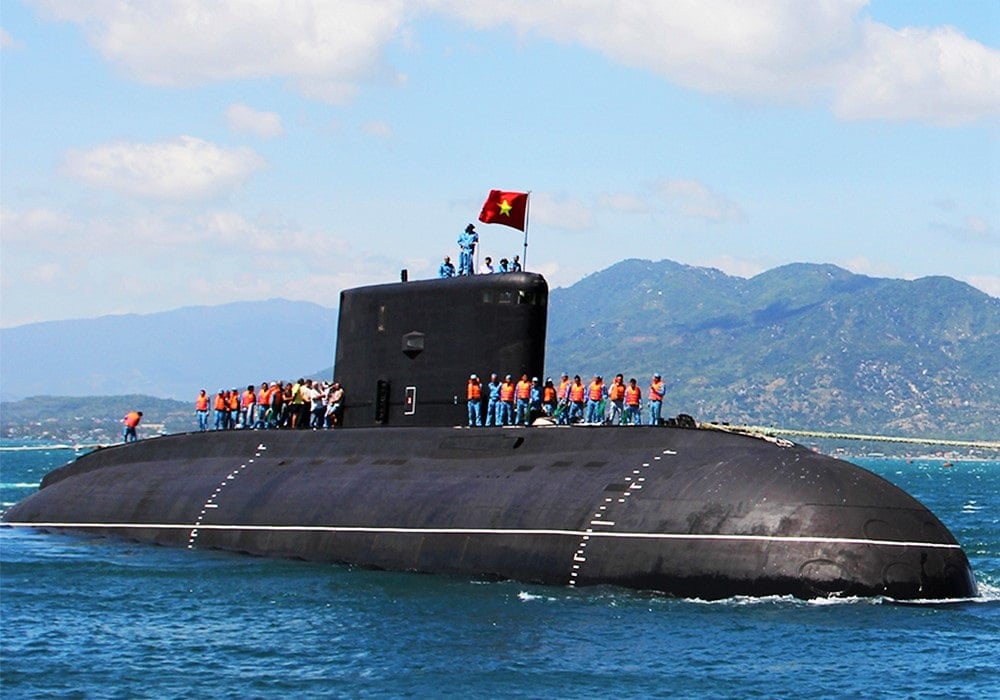
It was quite the turn-of-events, given that it was in 2009 that then-Russian President Dmitry Medvedev infamously stated, " Without a proper navy, Russia does not have a future as a state." As it now stands, the future of the Russia Navy is in question, and perhaps so too is Russia given the quagmire it finds itself in with the ongoing war in Ukraine.
The Royal United Services Institute (RUSI), the world's oldest and the UK's leading defense and security think tank, wrote in 2022 that constraints on Russia's shipbuilding industry as well as it finances will result that the Russian Navy's surface fleet is likely to evolve into a green water fleet based around frigates and corvettes.
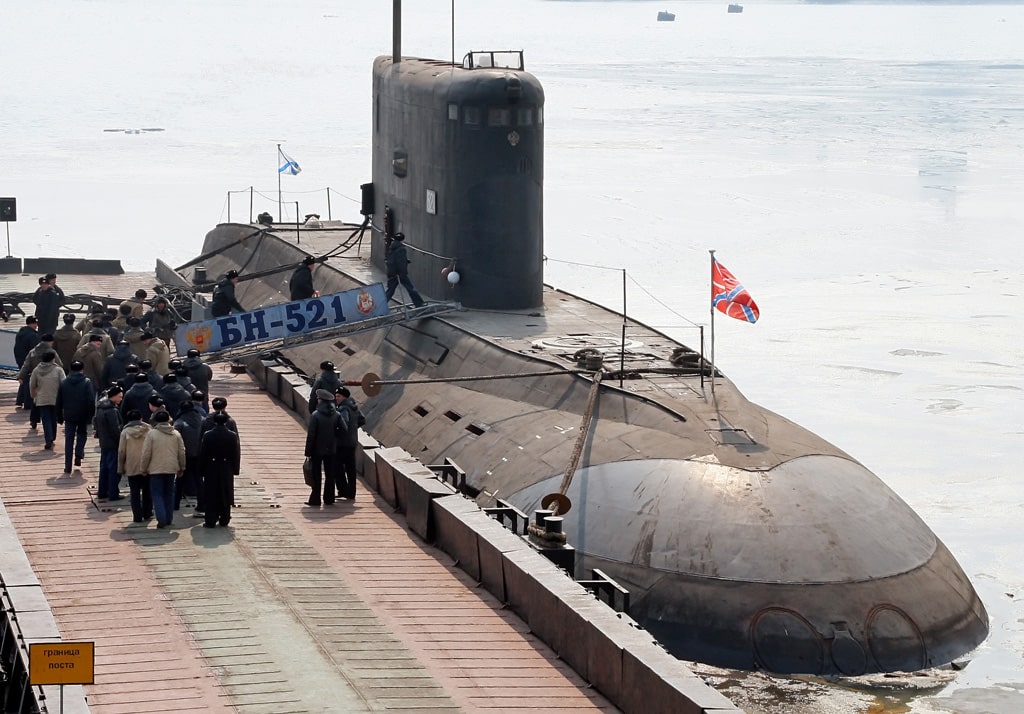
The Kremlin is simply going to be unable to replace its surface fleet's large warships, and will become a littoral force built around those small combatants that operate close to Russian-held shores. Moscow may have a great and ambitious vision to construct a new generation of destroyers, yet, its shipbuilding industry is unlikely to deliver.
Author Experience and Expertise: Peter Suciu
Peter Suciu is a Michigan-based writer. He has contributed to more than four dozen magazines, newspapers, and websites with over 3,200 published pieces over a twenty-year career in journalism. He regularly writes about military hardware, firearms history, cybersecurity, politics, and international affairs. Peter is also a Contributing Writer for Forbes and Clearance Jobs. You can follow him on Twitter: @PeterSuciu. You can email the author: [email protected].
All images are Creative Commons.
